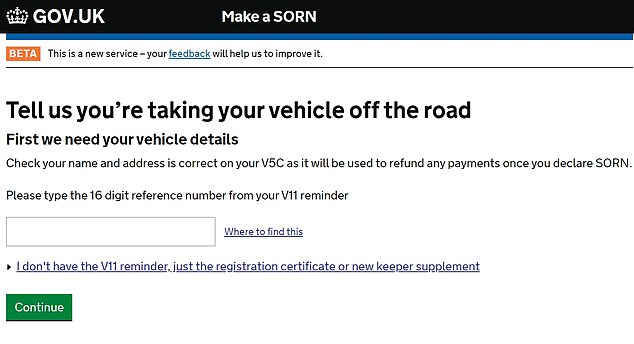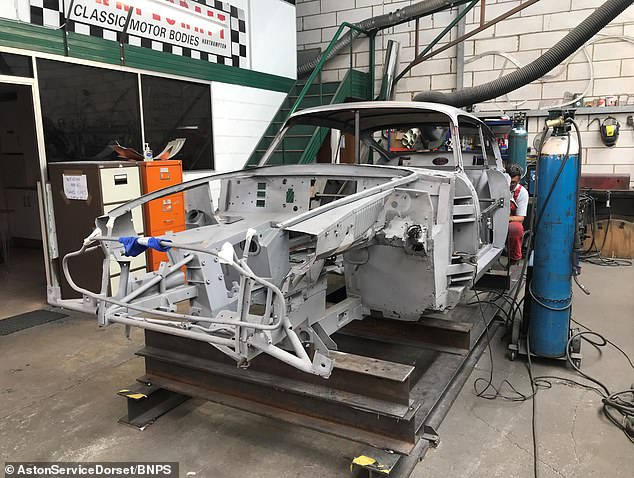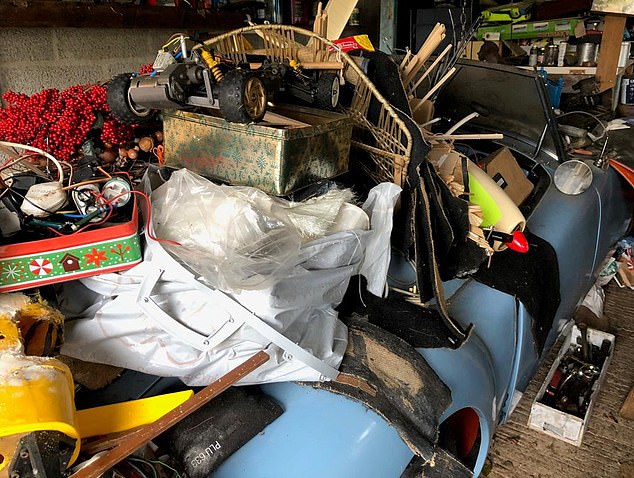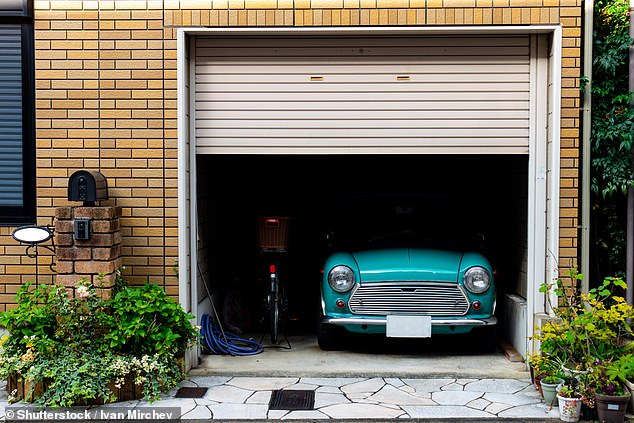Should I declare my classic car SORN in winter to save money?
Classic cars are great in the summer – top-down driving on a sunny day is heaven.
But classic cars in winter are a different matter, and many people chose to store their cars for the colder, harsher months.
Before this winter arrives, we examine the Statutory Off-Road Notices (SORN) for classic cars to help you decide whether officially taking them off the road is the best idea.
What does SORN mean, how do you prepare your classic car for it and save money? Here’s our guide to vintage motorcycles.
SORN (Statutory Off-Road Notification) is when you notify the DVLA that your car is currently not in use and you are going off the road
What is SORN and how do you register your car as SORN?
SORN (Statutory Off-Road Notification) is where you notify the DVLA that your car is currently not in use and that you are taking it off the road.
You can register your car as SORN via the DVLA website or by telephone or post. It’s free and you can choose to register it as SORN immediately or from a certain date.
To be legally SORN, your car must be parked on the premises and not driven. Otherwise you could be fined up to £2,500.
Motorists will get the full remaining tax months back (if registered after January 1, 1984) and can cancel their car insurance to save more money.

To be legally SORN your car must be parked off-road and not driven, otherwise you could be fined up to £2,500
Why take your classic car as SORN?
Positives
Classic cars are often only driven for part of the year, usually during the nicer spring and summer months.
If the weather is bad and you are unlikely to take your car out regularly, it is wise to store the car in a garage for protection.
This can also give you the perfect opportunity to free up time to work on it and restore it, without having to pay for it to be on the road at the same time.
Taking your classic car off the road in the winter can save you money. By declaring your car as SORN, you do not have to pay for insurance and fuel.
If you cancel your insurance, you can get back the months you don’t drive, although you may be charged a cancellation fee.
If you want to drive it again in the warmer months, all you have to do is pay taxes on it and re-insure it and you’ll be back on the road.
Disadvantages
Although storing a classic car can keep the bodywork in pristine condition, mechanically classic cars work best with regular use. Declaring them SORN and storing them may cause mechanical or electrical problems. Problems with the engine, battery and tires are all common and need to be resolved. elaborated.
Depending on where you keep your SORN classic, it may be visited by local wildlife. Rodents can nest in the warm corners of classic cars and damage the wiring or even the upholstery.
One obvious disadvantage is that you cannot drive your car or you will be prosecuted and fined £2,500 if you are caught driving illegally. To get back on the road, you’ll need to get the car valued and insured, so the spontaneity of getting into your classic for a drive on a sunny day is gone.
If something happens to your car and it is not insured while it is SORN, you could end up with a large bill. Worse, even if it’s stolen!
One option to deal with this is to take out insurance, but that could result in potential savings from SORN.

Many insurance companies offer insurance that covers your car while in storage against damage (accidental or malicious), fire, lightning and explosions, theft or attempted theft.
What is cancellation insurance?
Your classic could be SORN while it is being restored, you just want to store or transport it, and home insurance is a very good way to protect your car and your investment.
Many insurance companies offer insurance that covers your car against damage (accidental or intentional), fire, lightning and explosions, theft or attempted theft.
This insurance also covers it during transport – to and from the garage or even exhibitions.
Greg Butherway, underwriter at Heritage Classic Car Insurance, commented: ‘Simply declaring your classic car as SORN will not protect you.
‘You should at least consider suspension insurance, but only if you know your vehicle will be off the road for an extended period, for example for long-term restoration or maintenance work. This way you are insured against accidental damage, fire and theft.’
If you are going to SOR your classic car for the winter, how should you store it?
Dry storage and cleaning
It is extremely important that your car is stored safely and dry. This could be a garage or a specialized storage facility.
A dehumidified, ventilated and air-conditioned area is ideal because even if your car is under a roof, it is still exposed to the elements and dirt and moisture can cause rust.
Also, don’t forget to clean your car before storing it to make sure it doesn’t have any material on it that could cause rust. Keep a cover over your car even when storing it too.
Fuel tank and lubrication
Some people recommend topping up the fuel and adding a stabilizing product to prevent corrosion and oxidation and maintain fuel levels.
Others, including the RAC, say it’s fine to empty the tank and then add a small amount of fuel before taking your car out of storage.
Our advice is to consult a garage specialized in your brand to see what is best for your specific model.
And don’t forget to lubricate and treat the car parts: treat the rubber seals to prevent cracking and the hinges to prevent them from decaying.

Don’t store your car like that! Make sure that if your classic is SORN, it is stored in a well-ventilated area with a cover over it and that nothing comes into it that could damage the paint or bodywork and increase the chance of rust
Block it
If your cars are stored for months, you need to block them; Release the handbrake and place blocks or wooden blocks against each wheel to stop the wheel. If you keep the handbrake applied, your brakes may be damaged.
Tires and battery
To ensure that the tires of your classic car are not damaged by the weight of the car sitting on them for months, remove the wheels or balance them on axle stands. This allows air to escape and reduces pressure on the rubber.
Make sure to disconnect the battery to avoid draining it and then charge it when you want to plug it back in.
Employ
In an ideal world you would take your classic car in for servicing before putting it away, but at least change the oil yourself if you are not taking it with you. And remove the spark plugs.

The exact savings will depend on many factors, but if you don’t insure your car while on the road you can save a lot of money on insurance and even if you do decide to take out insurance, it is generally a lot cheaper than normal insurance .
Will I actually save money by owning a SORN classic?
This is case by case.
Because classic cars are exempt from road tax (if built before January 1, 1984), owning a SORN classic won’t save you any money there, but you can save on insurance, bills and fuel.
If you don’t insure your car while on the road, you can obviously save a lot of money on insurance and even if you decide to take out insurance, it is generally a lot cheaper than normal insurance.
As little as £80 per year can be imposed.
By not driving your car you save fuel; Fuel prices have been at their highest levels for three years, with a tank costing as much as £100 to fill up, and classic cars are not fuel efficient, so you could save hundreds of pounds by not using your car for several months to ride.
Even if you plan to have your car repaired or restored during this time, taking it off the road may help you reduce some of those costs by having it SORTED.
To work out the savings, you can get insurance quotes, see how much you can save compared to normal insurance, add fuel savings and then deduct the storage costs to get a margin.
Some links in this article may be affiliate links. If you click on it, we may earn a small commission. That helps us fund This Is Money and keep it free to use. We do not write articles to promote products. We do not allow a commercial relationship to compromise our editorial independence.
